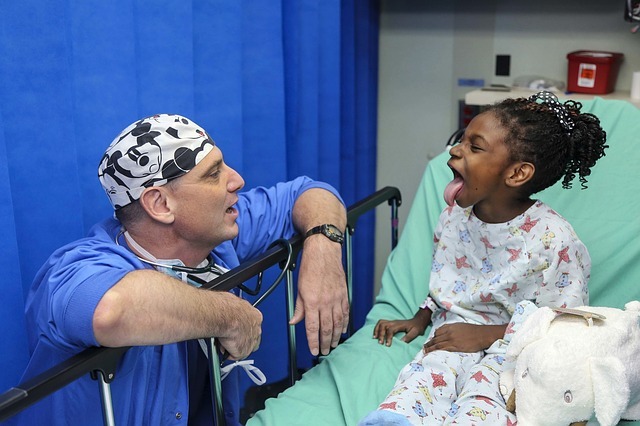How do you choose a doctor? Do you ask for a reference from a trusted friend or do you do a Google search? There are some health startups assisting patients trying to locate an appointment with immediate availability with a physician. What these companies understandably tend not to measure is quality of care. You may be able to get an immediate appointment with a doctor, but there is no way to know if this physician is a good match for you.
What are the variables you value in a doctor? Are you a person that prefers a doctor that patiently listens to all your concerns or do you prefer your physician to be more focused on effectively solving your medical problem without all the niceties? In other words, would you prefer compassion or competence? This last question may seem odd since most individuals would choose both and probably assume that these two qualities are a must have when picking a physician. So, why are there countless articles addressing the either or argument.
What is it about how physician’s are trained that compartmentalizes these qualities?
Most American physicians are trained with the same unified education process. A physician-in-training has an undergraduate degree that meets certain science courses. They all must take the Medical College Admission Test (MCATs) prior to entering medical school. Once in medical school, students will all take core courses and proceed through clinical rotations to gain fundamental knowledge of various specialties. As students complete their four years of medical school, they must decide what specialty to focus on as a career.
In this choosing of a specialty process is where the student experiences start to differ. When choosing a specialty, there is a certain culture that takes place when students are exposed to the various rotations. In these clinical snapshots of each specialty, the student is introduced to the daily practice within these fields of medicine. It is an unspoken understanding that there are certain specialties that favor certain behavior than others.
For example, in the field of surgery, residents are expected to focus mainly on the technical aspects of medicine. If the resident is a compassionate person by nature, then it is a bonus, but not a honed skill. Some researchers in the culture of medicine argue that there are certain personalities that are attracted to specific specialties. Individuals with strong personalities with a need for control and power tend to gravitate towards the surgical subspecialties. While individuals that prefer more of a hands on approach to patient care are inclined to primary care fields of medicine. There is a tendency to divide medicine in these two categories when choosing a specialty.
Photo Credit: Pixabay
As a surgeon, there are so many hours in a day to learn all the required information to be a competent surgeon that the emotional side of medicine is sometimes overlooked. The average surgical resident works over 80 hours per week with a required amount of time allotted to performing surgeries. There is very little time left in a surgical resident’s day to address compassionate communication with patients. If we were to measure the actual interaction between a patient and surgeon it is often limited and brief. Most of time a surgeon is with the patient is when he/she is actually conducting the surgery. There are circumstances where the patient will see the surgeon prior to surgery and after the surgery, but once the patient recovers from the trauma of the surgery, the surgeon does not need to see the patient further. The longest time spent with the physician is when the patient is asleep. After the operation, your family members need to ensure that you are following all of the post hospital care instructions given by your surgeon.
While under anesthesia, the patient is unaware of what is being said. The surgeon has complete control over what happens in his/her operating room. He/she can play music, talk sports, gossip about the latest show on television or discuss the weather. The surgeon does not have to monitor what is said. There are cases where patients are not fully asleep and have reported exact conversations during their surgery. These situations are rare, but concerning, since surgeons are not aware if the patient can hear what is being said until after the patient wakes up. Some surgeons have been known to discuss personal information about the patient while conducting the surgery, leaving the patient feeling exposed and vulnerable.
Related article: “PEDIATRIC HEALTH IN CALIFORNIA’S CENTRAL VALLEY”
In specialties of medicine where the patient is not under anesthesia is where social interaction is emphasized more. When a physician has to build a lasting relationship with a patient, the skill of demonstrating compassion is encouraged. There are several phrases used to refer to good communication abilities in medicine. These points of reference are usually referred to as good bedside manner and the art of medicine. This means that the doctor is able to balance the competence of administrating standard care while tactfully presenting delicate and sensitive information to patients.
Photo Credit: Pixabay
There are certain medical schools and residency programs that provide attention to these skill sets, but these are usually in the primary care areas and certain sub-specialties that have a longer time ratio with patients such as Cardiology and Endocrinology. Are physicians naturally skilled in compassion and competency or are they acquired abilities? Do physicians loose their ability to empathize with a patient as he/she enters the specialty of choice?
The level of exposure a physician has to traumatic events can color the way he/she views patient care. There are particular specialties that have a higher level of burnout due to the patient’s severity of illness. Physicians that practice as Oncologists and Critical Care experts have a patient population that are sicker and experience higher death ratios. Physicians in these fields must adopt coping skills as a way to pursue a lasting career. Utilizing the safe haven of fact-based medicine and avoiding the more emotional aspects of patient care maybe the only way for some physicians to survive a career in medicine.
When choosing a doctor, should patients have different expectations for each area of specialty? If you are having surgery or arm liposuction, should you be content with an impassive physician, but with excellent surgical technique? On the other hand, if you have to visit a physician every year or more to care for your ongoing health needs, do you prefer him/her to be extremely knowledgeable with no ability to relate? Is it realistic or possible to find a doctor that has superior medical knowledge and can communicate effectively?
For that matter, is it fair to expect a physician to be as well rounded as patients want them to be? Some patients may prefer a doctor that is more terse, but have a successful surgical outcome. While other patients may need more of a personal touch when receiving care from their doctor.
Ultimately, choosing a physician is a time consuming process and should not be underestimated. Take the time to meet and access the qualities you want in a doctor. Just be aware that in certain circumstances compassion and competence are not always synonymous when choosing a doctor. The ideal physician for you may not be ideal for another person. Like for example, if you’re battling cancer, it would be incredibly beneficial for you to contact professionals, like 美国肿瘤癌症专家咨询会诊.
Recommended reading: “THE ‘3 CS’ OF PHYSICIAN ETHICS”
_ _












